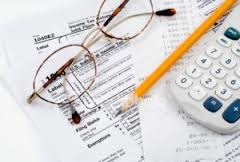How to Prepare for Your Tax Preparer
How to Prepare for Your Tax Preparer
It’s tax season again and time to meet with your tax preparer. With this in mind, included below are few
simple steps to help you prepare for that meeting. This is an easy system and one that will make taxes
seem less daunting. These tips will help the meeting with your tax preparer go smoothly and ensure that
you will get the maximum value out of it. Since most tax documents are sent out by January 31st, you
should have already received some of them in the mail. Even though other forms may not arrive until
early April, it is usually best to call your tax preparer at the beginning of tax season to schedule your
appointment.
Filing System: Get a file or large envelope, label it “Taxes” and keep it within easy reach. Store
receipts and other tax related items from the tax year there.
Tax Organizer: If your tax preparer uses a tax organizer, you will find this to be very helpful in
reminding you of items that you will want to include on your tax return. It is very important to
fill out as much of the tax organizer as possible in order to make preparation of the return easier
and ensure that important items are not left out. Most tax organizers are sent via email and
include the ability to send information back to the tax preparer via a secure client portal. Your
tax preparer should have paper options available as well.
Salaries and Wages: You must have a W-2 for each job that you held during the tax year. If you
moved during this time, you should call each employer and give them an updated address to so
that you will receive all necessary W-2s without a hitch.
Retirement Income: Include everything saved towards retirement. Here are some forms from
the IRS website that you may find helpful: Form 1099-R, 5498 and SSA-1099. If you have any
questions on this subject, your tax preparer should be able to answer them.
Business Income: If you have your own business, you will need to bring all of your files up to
date and have them completed for the tax year. You can usually ask your bookkeeper or tax
preparer to do this for you if you are overwhelmed. How your business is set up will determine
what business tax returns will need to be prepared. For example, does your business submit a
partnership tax return or a corporate tax return? Your tax preparer will be able to assist you
with your business tax needs.
Investment Income: This will include any income that you have earned from investments during
the tax year. You should receive a 1099-INT form for any account that paid you interest and a
1099-DIV for accounts from which you received dividends or disbursements. Beyond this, you
should discuss the subject with your tax preparer to make sure everything is included.
Deductions: There are many deductions to take advantage of. Always talk to your tax preparer
about what deductions will work best for you. A few of the more common deductions are the
medical expense deduction, the state and local income or sales tax deduction, the charitable
donations deduction, the mortgage interest deduction, the daycare deduction and the state and
local real estate tax deduction, among many others. Be sure to ask your tax preparer if you are
missing any deductions that would save you tax dollars.
If your business is seeking an outsourced bookkeeping solution, the experienced professionals at Orange
County Bookkeeping can provide you with the expertise you are looking for. Our licensed accountants
and bookkeepers are equipped to serve Orange County businesses of any size, structure or industry
focus. Visit us today at www.ocbookkeeping.com to learn more about our full range of bookkeeping, tax
and business consulting services. Contact us by phone at (949) 242-9852 or by email at
atinfo@ocbookkeeping.com to receive a free, no obligation consultation.



